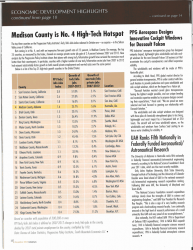Liars. Disloyal. Prima donnas.
It’s not star athletes, folks. It’s your very own Millennial generation. So says a set of studies done in recent months surrounding the latest group of employee to hit the workplace.
I’ve debated on writing on this topic for a while, but when the latest came out about a study describing honesty as it pertains to generational boundaries, I had to jump in. I’m usually the very last person to ever talk about specific generational issues, because I really don’t believe most of the hype. However, when you’re asking a group of people to report on themselves, the results are a little more useful than the opinionated blathering of a self-proclaimed expert.
The Gap
In my opinion, the major dividing line between the generational factions up to this point hinges on what I like to call “the gap.” Here’s what I mean:
Are Millennials Team Players?
- 60% of Millennials thought they would work well with a team
- But 22% of HR professionals believed Millennials would make good team players
Do Millennials Have Strong Interpersonal Communication Skills?
- 65% of Millennials responded that they relate well to others
- 14% of HR Professionals thought that Millennials were strong communicators
Are Millennials Hard Workers?
- 86% of Millennials identified themselves as hard workers
- 11% of HR professionals thought Millennials would work hard
Are Millennials Able to Lead?
- 40% of Millennials identified themselves as leaders
- Only 9% of HR professionals believed that age group had the ability to lead
Are Millennials Loyal to Employers?
- 82% of Millennials self-identified as being loyal to an employer
- A mere 1% of HR professionals believed Millennials to be loyal to an employer
That’s the gap, courtesy of this study.
Now for the killer
Okay, if you only had the last set of data to go on, you can plainly see there’s a disconnect there. Now what if that was compounded by a study where Millenials admitted that they would lie to get out of a tough spot. In my profession, there are “tough” spots on a daily basis. I always assume someone is telling the truth unless they give me reason not to, but even then this type of information is stunning. To be honest, every group surveyed thought it was okay to lie to some extent, but not to the tune of 80% of the population.
A whopping 80 percent of Millennials find it acceptable to lie to avoid embarrassment, compared to 57 percent of Baby Boomers, who believe it's OK to lie their way out of an awkward scene.
What are your thoughts? Is this limited to a specific generation, or is it more widespread? Is your organization concerned about these types of studies? Why or why not?

